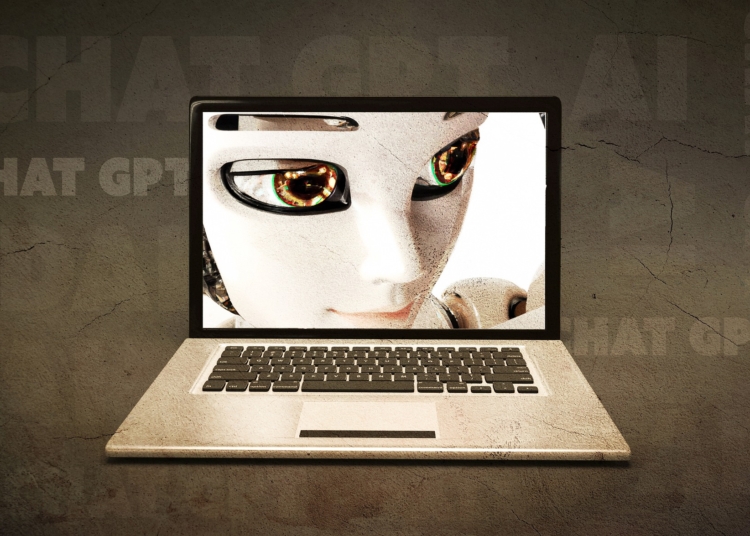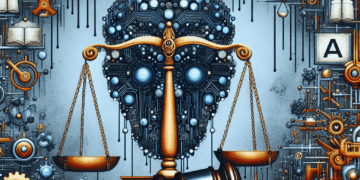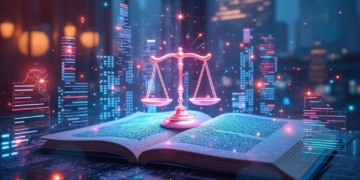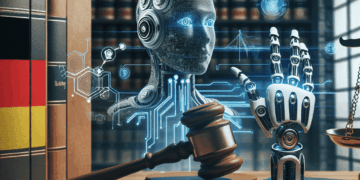- AI-generated contracts can entail risks and disadvantages, despite apparent time and cost savings.
- Contracts must be tailored to the individual situation of the parties, which requires legal expertise.
- Sample contracts offer no guarantee of suitability and can cause legal problems.
- The quality of AI texts is questionable; their understanding of legal contexts is limited.
- Without legal knowledge, users are often unable to recognize misunderstandings in contracts.
- Legal liability for AI-generated contracts is unclear; lawyers take responsibility for their work.
- An experienced lawyer offers comprehensive advice and develops customized solutions for companies.
Why startups and the self-employed should not use AI-generated contracts
As an IT lawyer, I advise start-ups, self-employed people and companies on a daily basis on the drafting and review of contracts. Lately, I’ve been asked more and more often whether it’s possible to simply use ChatGPT or other AI tools to get contracts quickly and cheaply. My answer to this is a resounding no – and here I explain why. In today’s fast-paced business world, the urge to automate and speed up processes is great. This also applies to the drafting of contracts. The temptation to fall back on AI-generated contracts is understandable: they promise time and cost savings. But as tempting as this may sound, the risks and disadvantages far outweigh the benefits.
As an experienced lawyer, I have seen many contracts – good and bad. And I can say with conviction that an AI-generated contract can be of high quality, but this depends crucially on the right input and experienced use of the AI tools. After more than two years of experience with AI, I know that the output is often only as good as the input. And legal expertise is needed to ensure that the input is appropriate and effective.
After all, a contract is far more than just a collection of clauses and legal phrases. It must take into account the individual situation and the objectives of the parties, avoid legal pitfalls and ensure clarity and legal certainty. All of this requires experience and judgment – skills that an AI does not (yet) have.
Even advanced language models such as GPT-4 or Anthropic’s Constitutional AI, which can deliver impressive results, are no substitute for human expertise. Because in the end, it’s not about whether the AI is good or bad – it’s about whether you as an entrepreneur want to take the risk of having to assess the quality and suitability of a contract yourself. And this risk is high, no matter how powerful the AI is.
Sample contracts are nothing new
Long before the AI hype, there were sample contracts and templates that could be found and used online. However, the use of such patterns has always been associated with risks. This is because a standard contract is never tailored to the individual situation and needs. Important clauses may be missing, inappropriate wording may be included or legal pitfalls may lurk. Even if a sample contract has been drawn up by a lawyer, this does not mean that it is suitable for every individual case. Every company has its own special features, objectives and risks that need to be taken into account in the contract. A standard contract cannot reflect this individuality. It is always just a template that has to be adapted to the specific circumstances.
And this is precisely where the problem lies: without legal expertise, it is difficult to assess whether a model contract really fits and what needs to be changed. Many freely available sample contracts are outdated, do not fit the specific situation or even contain clauses that can be disadvantageous for one party. The use of an unsuitable model can lead to misunderstandings, disputes and, in the worst case, legal consequences.
In addition, the templates are often confusing and difficult to understand, especially for legal laypersons. Important aspects can be overlooked because they get lost in the jungle of contracts. And even if you think you have understood everything: There is no guarantee that the design is really watertight and will stand up in court in the event of a dispute.
Last but not least, remember that if you use a free sample contract and problems arise later, you cannot hold anyone liable. In contrast to individual legal advice, there is no contact person who is responsible for the correctness and completeness of the contract. You bear the full risk yourself.
Of course, in some cases it can make sense to use a sample contract as a starting point. However, this should always be done with caution and with the involvement of specialist expertise. This is the only way to avoid unpleasant surprises and draft legally compliant contracts that meet individual requirements.
AI-generated contracts are even riskier
With AI tools such as ChatGPT, contract texts can now be created quickly and easily. However, the quality and accuracy of these texts is highly questionable. The AI hallucinates content based on its training data, without any real legal understanding. It cannot assess whether the contract drawn up is suitable and legally compliant for the specific application. Even advanced language models such as GPT-4 from OpenAI or the LLMs from Anthropic such as Sonnet or Opus, which can certainly provide good contract models, have their limits. Even with these models, the quality of the output depends crucially on the user’s input and instructions. Without legal background knowledge, it is difficult to formulate the right prompts and assess the results correctly.
Another problem is that AI is not able to fully grasp the context and specific requirements of a company or industry. Every contract must be tailored to individual needs and risks. An AI can generate standard clauses, but it cannot take into account the parties’ strategic objectives, negotiating position or business relationship. These subtleties require human judgment and experience.
In addition, the AI lacks an understanding of the legal implications and possible consequences of certain formulations. It cannot weigh up which clauses are appropriate or risky in which situation. The AI may also miss subtle nuances in the language that can be legally significant. An experienced lawyer, on the other hand, can recognize and eliminate potential loopholes, contradictions or ambiguities.
In addition, the AI’s training data is often outdated or incomplete. Changes in the law, current court decisions or industry-specific features may not be taken into account. This harbors the risk that AI-generated contracts do not correspond to the current legal status or omit important aspects. A lawyer, on the other hand, is always informed about the latest legal developments and can ensure that the contract covers all relevant points.
Last but not least, there is the question of liability and responsibility. If an AI-generated contract has defects or leads to disputes: Who is liable? The user who used the AI? The provider of the AI software? Or the AI itself? These questions have not yet been conclusively clarified in legal terms. In the case of legal advice, on the other hand, it is clear that the lawyer is liable and responsible for his work.
Overall, the use of AI in contract creation is therefore associated with considerable risks. Even though technology is making impressive progress, it cannot replace the expertise and judgment of an experienced lawyer. AI tools can be used to support the creation of drafts or to check certain clauses. However, the final revision and approval should always be carried out by a qualified lawyer to ensure the quality and legal certainty of the contract.
More than just contracts: Holistic advice is in demand
My job is not simply to sell standard contracts. I offer my clients comprehensive advice and support. Together, we analyze the initial situation and identify opportunities and risks. I explain the legal context and develop a strategy with the client. Based on this, I create customized contracts that are optimally tailored to your needs. This is not just about the pure content of the contract, but also about embedding it in the company’s overall strategy. Which contracts are needed at all? How do they need to be designed to support the business objectives? What risks need to be covered? I discuss all these issues with my clients in order to find a holistic solution. Because only if the legal framework is right can a company concentrate fully on its core business and grow successfully.
As a lawyer and business consultant, I see myself as a personal companion to my clients on their entrepreneurial journey. As described here, I bring my many years of experience as an entrepreneur, IT nerd and contract lawyer to every client relationship. I advise from the perspective of an entrepreneur with a deep understanding of the challenges and opportunities of the digital world. My approach goes far beyond simply drawing up contracts. I take the time to understand my clients’ situation and goals in detail. In intensive discussions, we work together to develop strategies and solutions that are perfectly tailored to the company in question. This is about trust, empathy and forward-looking planning.
An AI may be able to generate draft contracts quickly. But it can never replace the human element – the understanding of individual needs, creative problem-solving and trusting cooperation. As a lawyer, I am not just a legal service provider, but a sparring partner and advisor who speaks the language of entrepreneurs and shares their visions. This holistic, personal approach is what defines my work. And that is precisely the decisive added value that I offer my clients – far beyond what an AI could ever achieve. After all, successful corporate management requires more than just standard contracts. It needs tailor-made solutions, forward-looking advice and a trusting partnership of equals. And that is what I stand for with my expertise and passion.
Conclusion
My advice is therefore clear: do not blindly trust AI, but get the support of an experienced lawyer. Only the combination of human expertise and intelligent technology can create tailor-made, legally compliant contracts that protect and advance your company. Let’s use the possibilities of AI together – but with the necessary caution and expertise.
Model contracts and AI-generated contracts may be a temptingly simple solution. However, they are no substitute for qualified legal advice. Only in a dialog between client and lawyer can tailor-made, legally secure contracts be created. This is the only way to reliably avoid legal risks and ensure the company’s long-term success. Therefore, do not rely on AI and templates, but on the expertise of an experienced lawyer. I will be happy to support you in creating the optimum contractual basis for your company. Simply contact me for a non-binding initial consultation.


















